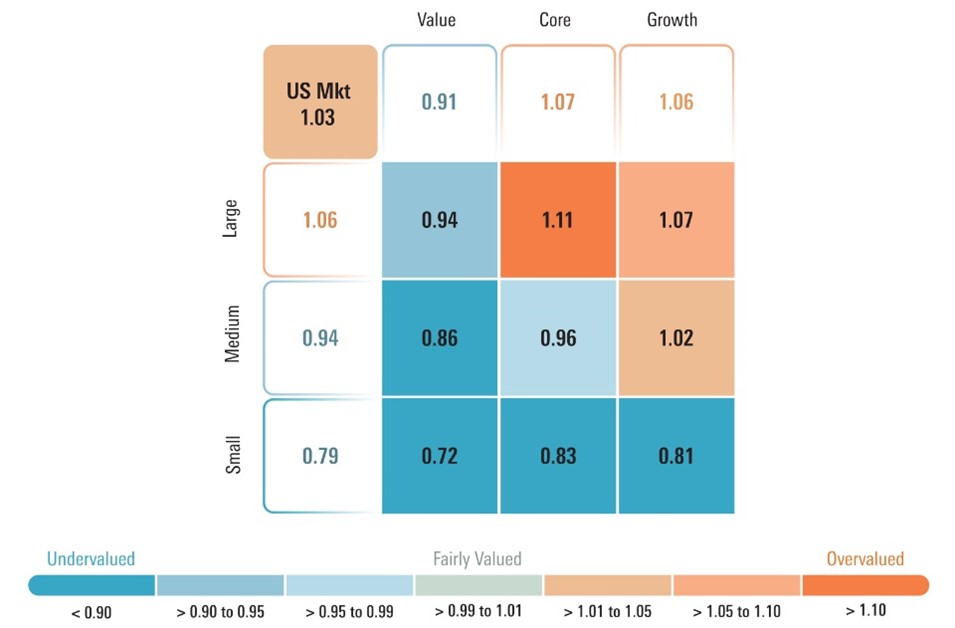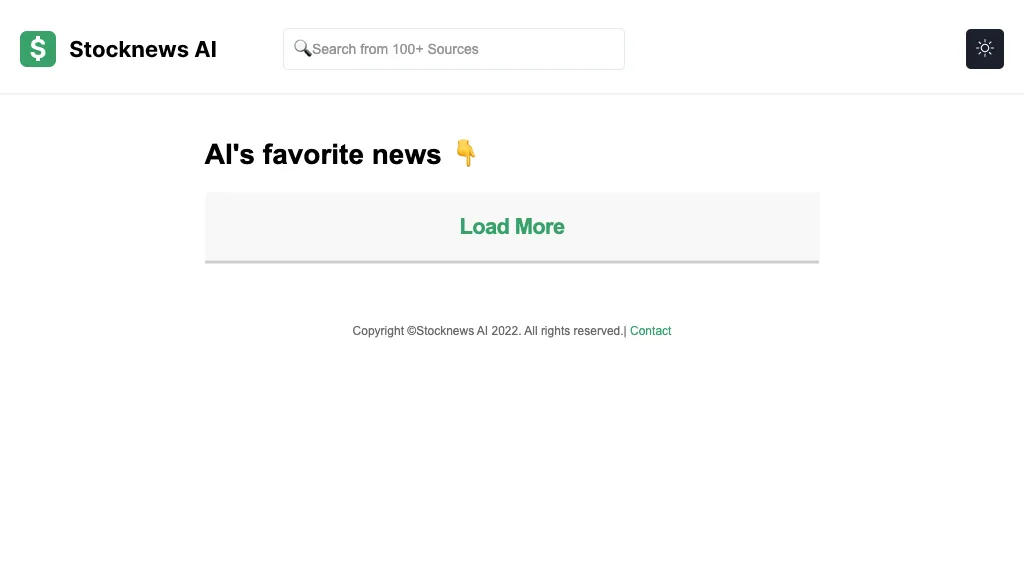20 New Advice To Picking AI Stock Trading Platform Websites
Top 10 Ways To Evaluate The Accuracy & Performance Of Ai Stock Predicting/Analyzing Trading PlatformsTo ensure that you are making use of a platform that is capable of providing reliable predictions and insights it is essential to test the accuracy and effectiveness of AI platform for predicting stocks and analyzing them. Here are 10 top tips to assess these platforms.
1. Backtesting Results
What to look for: Find out whether the platform you are using has backtesting capability to determine the accuracy of its predictions on the historical data.
What is the significance of backtesting? Backtesting is a method to verify the validity of an AI model through comparing the predictions to historical results.
Tip: Choose platforms that let you customize the parameters of backtesting (e.g. durations or asset types).
2. Real-Time Monitoring of Performance
What to Look For: Assess how the platform performs in the market in real-time.
Why It's Important The real-time results are a better indication of the efficiency of a system than historical backtesting.
Tip: Monitor live forecasts in real time and compare them with actual market movements using a demo or free trial.
3. Prediction Error Metrics
What to look for Measurements such as Mean Absolute Error and Root Mean Squared Error or R-squared to gauge the accuracy of predictions.
What is the significance of these metrics offer a quantitative measure to assess how close predictions are to actual results.
Tips: Platforms that openly reveal these metrics are more transparent.
4. The Winning Rate and the Success Ratio
What to look out for: Examine the rate of winning on the platform which is the percentage of forecasts that are correct. Also, look at its success ratio (the profitability of trades made on the basis of predictions).
What is important The high success ratio and win percentage indicate greater accuracy in predicting the future, and therefore potential profitability.
Be wary of websites that claim to have a high success rate (e.g. 90%) %+),) since there is no way to assure 100 100% success.
5. Benchmarking Market Indices with Benchmarking
What to watch out for: Examine the performance and predictions of the platform against the major market indexes.
What is vital because it will help determine whether this platform outperforms (or outperforms) the overall market.
Tips: Don't just seek out short-term gains but also consistent performance over a longer period.
6. Consistency across Market Conditions
What to look out for What is the performance of the platform when there are different market conditions.
Why It Matters: A robust platform should perform well in all markets, not only in favorable conditions.
TIP: Test the forecasts of the platform during volatile periods and market declines.
7. Transparency in Methodology
What to Look for: Learn about the AI algorithms and models that are used (e.g. neural networks, reinforcement-learning).
Why is it important: Transparency helps you evaluate the reliability and scientific rigor.
Avoid platforms that use models that are "black boxes" that do not explain how they generate predictions.
8. User Reviews and Tests by Independent Parties
What to look for when choosing a platform Review the opinions of users and search for independent tests or third-party evaluations.
Why it matters: Independent reviews and testing provide unbiased insights into the platform's accuracy and performance.
Check out forums like Reddit or copyright to see what other users have posted about.
9. Risk-Adjusted Returns
What to look for: Evaluate the platform's performance by using risk-adjusted metrics like the Sharpe Ratio or Sortino Ratio.
Why It Matters: This measure measures the risk that is taken to achieve the desired returns. It provides an overall picture of the performance.
Tip: A high Sharpe Ratio (e.g., above 1) indicates higher risk-adjusted returns.
10. Long-Term Track Record
What to Look For What to Look For: Check the platform's performance over a long period (e.g. over 3 or 5 years).
What is important Why it matters: Long-term performance is a more reliable indicator than shorter-term outcomes.
TIP: Don't use platforms that only show temporary or limited results.
Bonus tip: Sign up for a demo account
Demo accounts or free trials let you check the accuracy of the prediction system in real time, without risking actual money. This lets you evaluate accuracy and performance.
With these suggestions You can evaluate the accuracy and performance of AI analysis and stock prediction platforms. Make sure you select one that is compatible with your goals in trading and the risk you are willing to accept. Be aware that no platform is infallible, and combining AI insights along with the results of your own research is usually the most effective approach. Check out the most popular full article about best ai trading software for more examples including best ai for trading, ai for investment, ai for stock predictions, best ai stock, trading ai, ai for stock predictions, ai stock trading app, chart ai trading assistant, best ai trading app, ai trade and more.

Top 10 Tips For Assessing The Regulatory Compliance Of Ai Stock Predicting/Analyzing Platforms
The regulatory compliance of trading platforms that use AI to predict/analyze the price of stocks is a significant factor. Compliance ensures that the platform is operating within the legal frameworks, safeguards personal data of its users and adheres to financial regulations, reducing the risk of legal issues or financial penalties. Here are 10 suggestions to evaluate the regulatory compliance on these platforms.
1. Verify your license and registration
Regulatory bodies: Ensure the platform is registered and licensed by relevant financial regulatory bodies (e.g., SEC in the U.S., FCA in the UK, ASIC in Australia).
Verify the broker collaboration: If your platform integrates with brokers or brokers, be sure that these brokers are also licensed and regulated.
Public records: Go to the regulator's website to verify the status of registration, as well as past violations.
2. Assessment of Data Privacy Compliance
GDPR - If your site operates within the EU and/or serves users from the EU make sure that it complies with GDPR.
CCPA for Californians Check compliance with California Consumer Privacy Act.
Data handling policies: Read the privacy policies for data on the platform to find out how it describes data collection, storage, and sharing.
3. Assess Anti-Money-Laundering (AML) measures
AML policies: Make sure the platform has robust AML policies that are in place to prevent and detect the laundering of money.
KYC Procedures: Verify whether there are procedures on the platform to verify users' identities.
Transaction monitoring: Verify that the platform is monitoring transactions to detect suspicious behavior and alerts relevant authorities.
4. Check the conformity with Trading Regulations
Market manipulation: Ensure the platform has measures to protect against market manipulation like spoofing or wash trading.
Types of orders: Check if the platform meets rules regarding types of orders (e.g., no unlawful stop-loss hunting).
Best execution: Verify that the platform follows the best execution methods to ensure that trades are executed for the best price.
5. Cybersecurity Assessment
Data encryption. Your platform should use encryption of user data both during transit and in the rest.
Incident response. Verify that there is a clearly defined incident response strategy on the platform for cyberattacks and data breaches.
Certifications - Find out whether your platform is certified. cybersecurity certifications.
6. Transparency Disclosure, Transparency and Evaluation
Fee disclosure - Make sure all fees are made public, including additional or hidden charges.
Risk disclosure: Check if the platform has explicit risk disclosures, particularly for leveraged or high-risk trading strategies.
Performance reporting: Make sure that the platform is clear and accurate information regarding the accuracy of its AI models.
7. Verify the conformity to International Regulations
Cross-border trading. If you are planning to conduct international trade, make sure that your platform complies with all regulations applicable to it.
Tax reporting: Verify if the platform provides tools or reports to assist users in complying with tax laws (e.g., FIFO rules in the U.S.).
Check for compliance with sanctions. Verify that the platform adheres to the sanctions and will not allow dealings or transactions with banned countries or entities.
8. Assess Record-Keeping & Audit Trails
Transaction records: Ensure that the platform has complete records of each transaction to be used for audits and regulatory purposes.
Logs of user activity (logs) The logs contain information about user activity. determine if the platform is tracking the activities of users, such as transactions and logins. Also, check if account settings are changed.
Audit readiness: Find out whether your platform is able to provide the required documentation and logs in the case of an inspection by a regulatory agency.
9. Verify compliance with AI-specific Regulations
Algorithmic rules for trading: If the platform permits the use of algorithms, it should conform to European regulations such as MiFID II and U.S. Reg SCI.
Fairness and Bias: Ensure that the platform is monitoring biases and minimizes them within its AI models in order to ensure fair trading.
Explainability - Ensure that the AI platform is able to give clear and concise explanations about AI-driven predictions, decisions and more. as required by certain regulations.
10. Review User Feedback and Regulatory History
User reviews: Read the feedback of users and then compare it with the platform's the regulations.
Check the regulatory history to see if there are penalties or fines for infractions of the regulations.
Third-party inspections: Check if the platform is subject periodic third-party inspections conducted by an independent party in order to verify compliance.
Bonus Tips
Legal consultation: Think about consulting an expert in the field of law to examine the platform's conformity to relevant laws.
Trial period. You can use the trial or demo version of the platform to try out its compliance features.
Customer support - Make sure that the platform is able to help with any compliance-related issues or concerns.
If you follow these guidelines, you can effectively assess the regulatory compliance of AI stock predicting/analyzing trading platforms, ensuring you choose one that adheres to legal frameworks and protects your rights. Compliance not only lowers legal risks, but also increases confidence and trust in the platform's services. Take a look at the best best stock prediction website for site info including best stock prediction website, ai stock analysis, investing with ai, ai options trading, ai stock analysis, ai stock trader, ai stock analysis, ai software stocks, investing with ai, stock trading ai and more.
